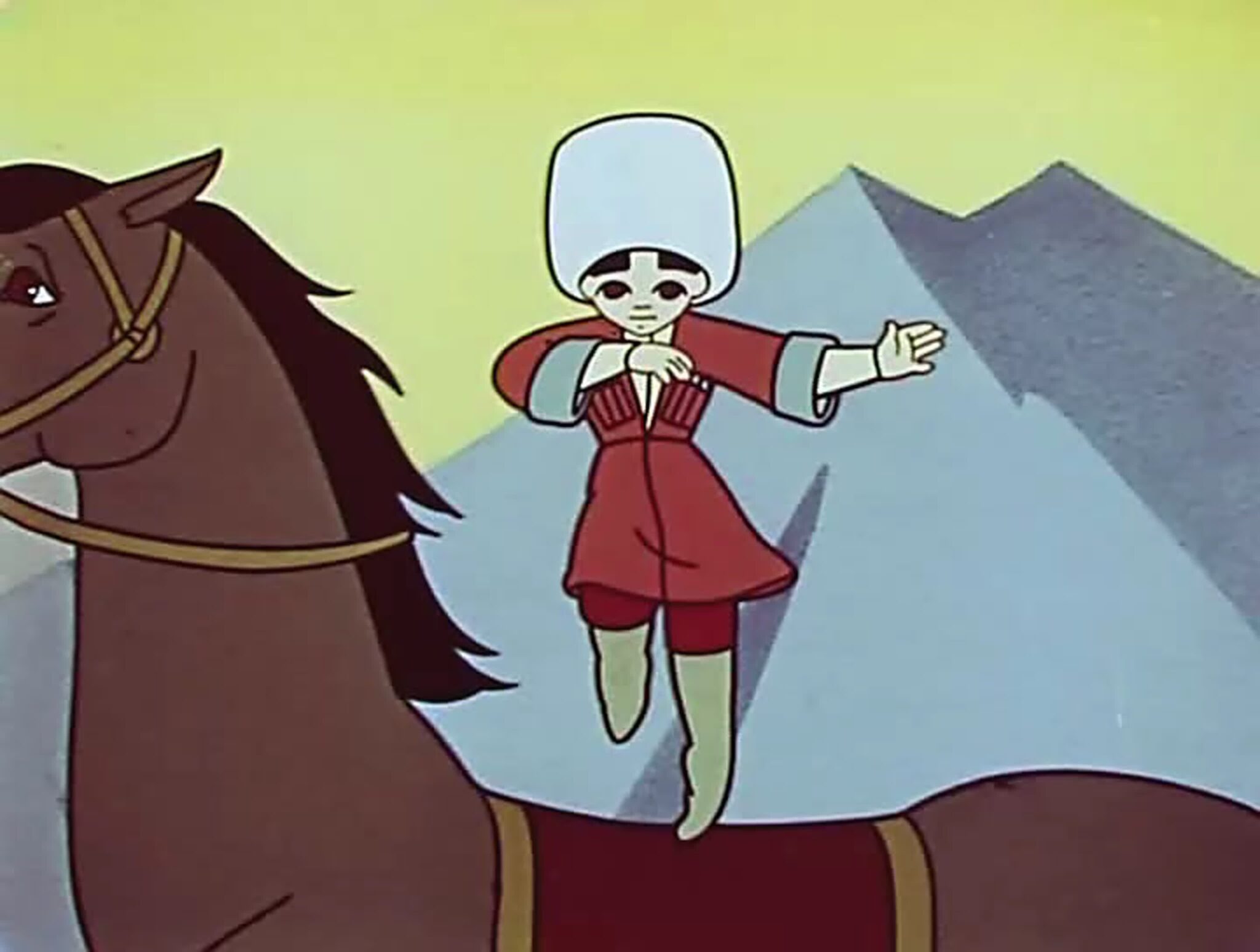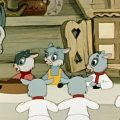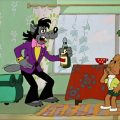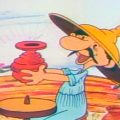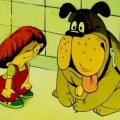“Birthday” is a Soviet animated short film from 1959, based on a Dagestani folktale. The story follows a boy named Murat, who lives with his grandfather in a high mountain village. One day, Murat watches his grandfather record the birth of a lamb in the family book and is surprised to find that his own name is not in the book. His grandfather explains that, according to ancient customs, a person’s true birthday is not the day they are born weak like a lamb, but the day they show themselves to be strong members of their community. From the examples the grandfather names, it becomes clear that this means being fully involved in the economy or unique traditions of one’s village: harvesting a crop, becoming a master equestrian, or walking a tightrope.
To further illustrate the concept of “earning one’s birth,” the grandfather tells Murat a legend about two brothers in a mountain village. The elder brother tended sheep, while the younger one had no responsibilities yet. In those days, an evil monster called Ajdaha lived among the rocks, terrorizing everything in sight. One day, Ajdaha attacked the elder brother while he was herding sheep, but the shepherd managed to hide with his flock in a cave. Furious, Ajdaha blocked the cave entrance with a giant rock, which also stopped the flow of a mountain stream, causing the cave to slowly flood.
The younger brother sets out to find his missing brother. Along the way, he saves a trapped baby mountain goat. Pleased with his kind deed, the mother mountain goat tells him how to defeat Ajdaha, stealing his ring adorned with precious stones that contained Ajdaha’s strength and heart. Using this ring, the younger brother breaks the rock and frees his elder brother and the family’s flock from captivity. Thus, the young boy became a true man.
The story cleverly and faithfully adapts a Dagestani folktale complete with its memorable and somewhat unusual moral and philosophical outlook, emphasizing the individual’s role in protecting others and being an active and brave member of one’s community. It does so with a moving musical score, excellent voice acting, and hand-drawn animation that are characteristic for Soyzmultfilm. These production values have kept Soyzmultfilm well-loved within many post-Soviet cultures.
You’ll Also Love
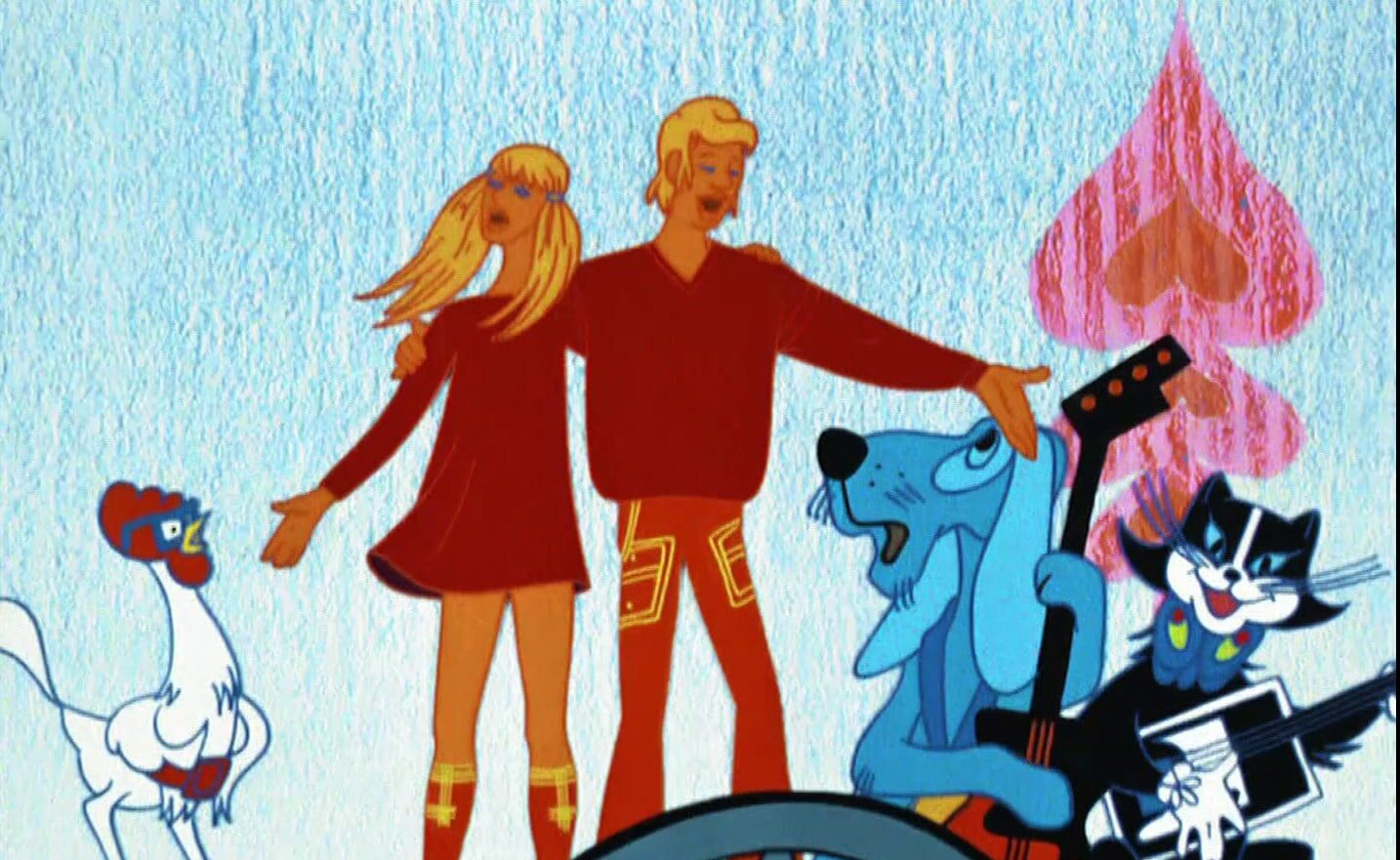
The Bremen Town Musicians: Songs of Freedom and Controversy
The Bremen Town Musicians (Бременские музыканты) is one of the first animated rock operas released in the USSR. It has since become popular among all generations, first in the Soviet Union and later gained reputation internationally. One of the film’s main draws was its unforgettable soundtrack and style, which drew from the latest global fashions […]
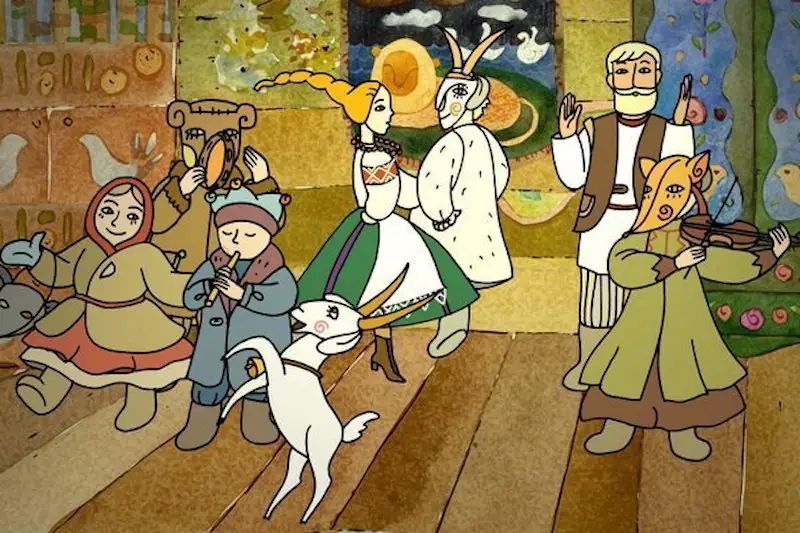
Music Box: Belarussian Folksongs Presented in Cartoons
Music Box (Музычная скарбонка) is a series of a few Belarusian short animated films that illustrate and give context to Belarusian folk songs. They were released in 2009 and 2012 by Belarusfilm (Беларусьфільм), the country’s national film studio. They range from three to about 10 minutes long. The series includes songs from a range of […]
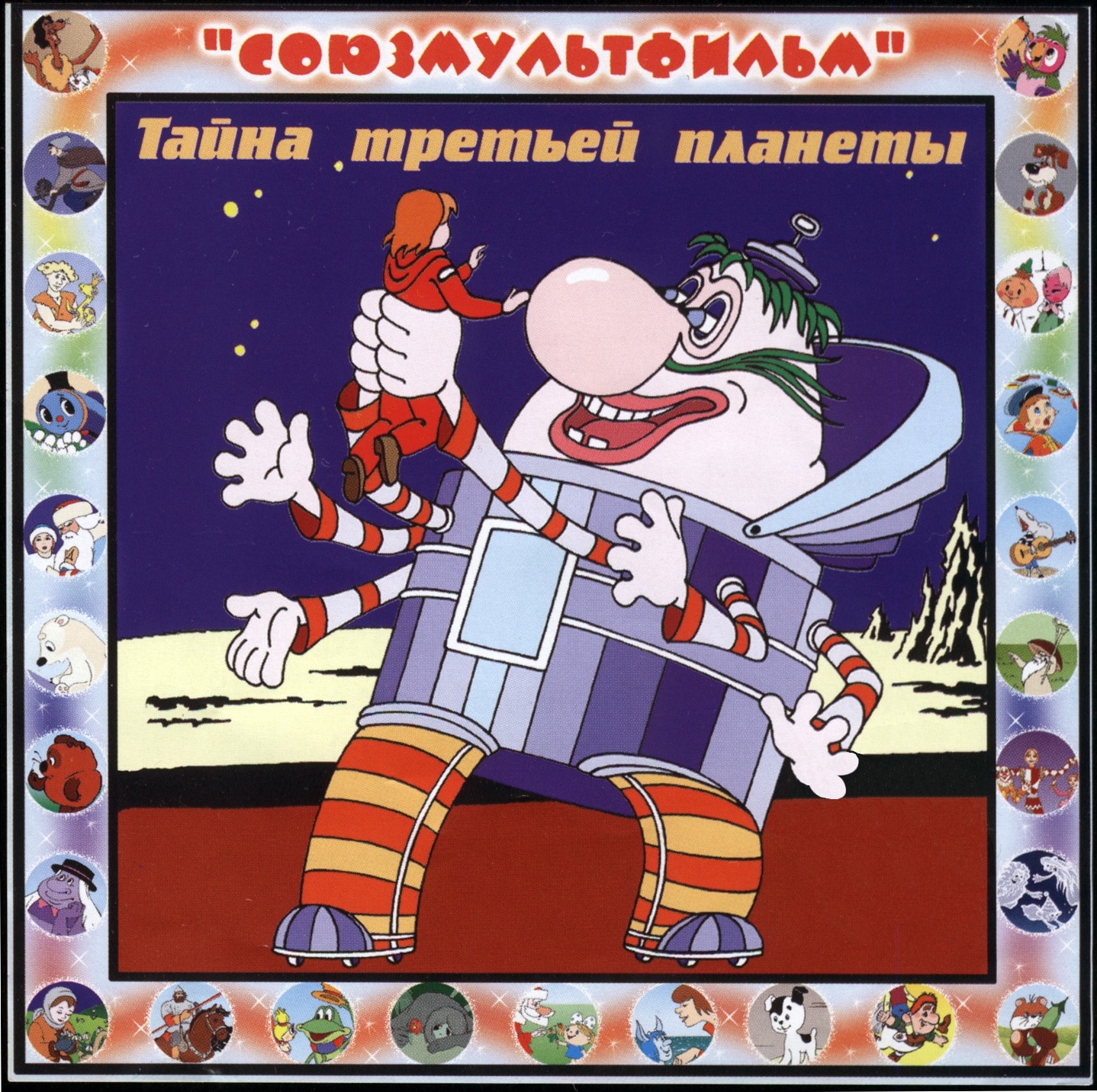
Mystery of the Third Planet / Тайна третьей планеты
Mystery of the Third Planet (Тайна третьей планеты) is a 1981 animated Soviet feature film based on the children’s sci-fi novella Alice’s Travel by Kir Bulychov (Кир Булычёв), from the Alice (Алиса) book series. The year is 2181, and Alice Selzynova (Алиса Селезнёва), along with her father Professor Selznyov (профессор Селезнёв) and their trusty compadre Captain […]

Babay / Бабай
Babay (Бабай) is a 2014 Ukrainian children’s animated film. It was made by Ukraine’s major animation studio, Ukranimafilm (Укранімафільм). In Slavic folklore, Babay is a sort of evil spirit in the shape of an old man. Parents apparently invoke him to scare their children when they aren’t listening. The film’s working title was “Who’s afraid […]
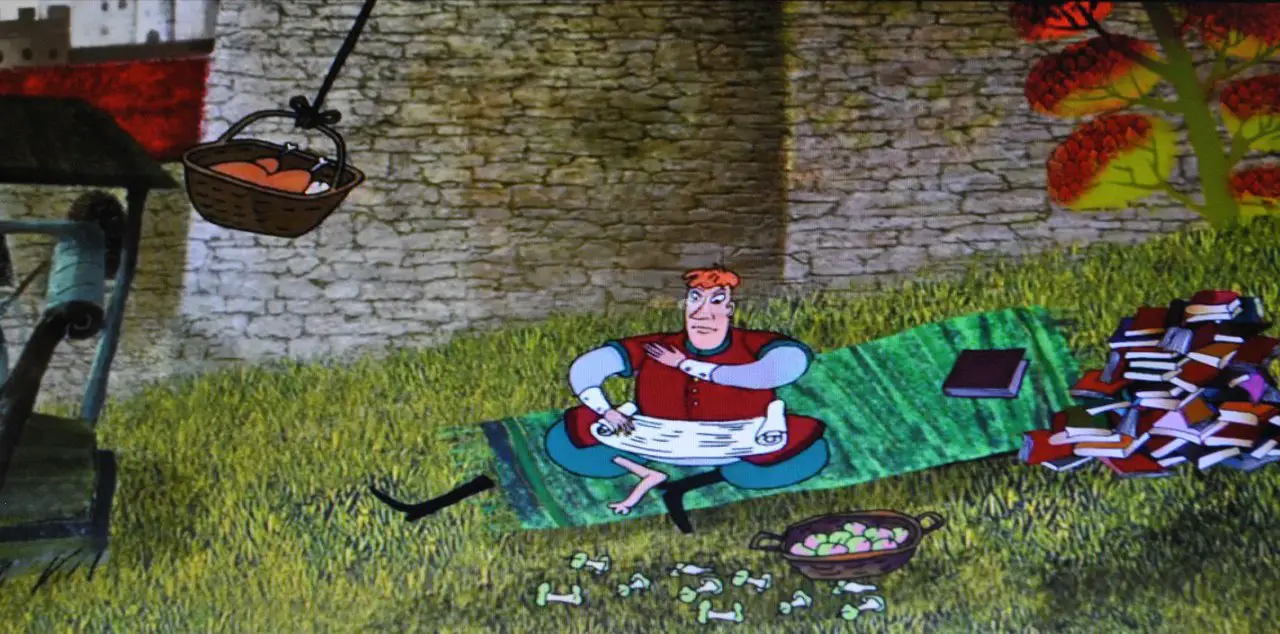
Lejeune (Lviv Tales) / Лежень (Львівські казки)
Lejeune (Лежень) is a Ukrainian animated short film released in 2013. It is based on a fairy tale by beloved Ukrainian and Soviet writer Yuriy Vynnychuk (Юрій Винничук), and is part of his Lviv Tales (Львівські казки) collection. Vynnychuk was a Soviet/Ukrainian writer who, unusually for the time, wrote only in Ukrainian. His works include poetry collections […]


